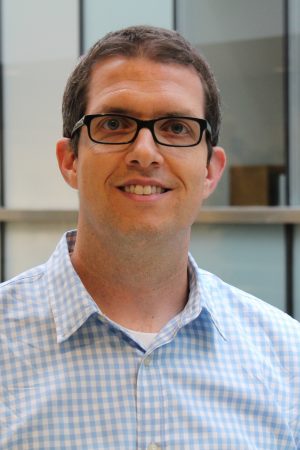Ian Binns

Ian Binns
Dr. Ian C. Binns is an Assistant Professor in elementary science education and Director of the Elementary Education Undergraduate Program at the University of North Carolina at Charlotte. He teaches undergraduate elementary science methods courses. His research interests focus on teachers’ and students’ understandings of science with attention on the nature of science, scientific inquiry, and scientists, research-based pedagogical strategies and curriculum resources, and the interaction between science and religion.
Research Interests:
1) teachers’ and students’ understandings of science with attention on the nature of science, scientific inquiry, and scientists
2) research-based pedagogical strategies and curriculum resources
3) the interaction between science and religion.
Education:
Ph.D. – University of Virginia, 2009, Science Education
M.Ed. – North Carolina State University, 2004, Science Education
B.S. – North Carolina State University, 2000, Environmental Science
Teaching:
Teaching Science to Elementary School Learners
Community Involvement:
Member, UNC System Rep., NCSSM Education Advisory Council, 2016-present
Member, Shady Brook Elementary School Leadership team, 2012-present
Advisor, Shady Brook Elementary School STEM development, 2012-present
Founder, North Carolina Citizens for Science, 2012-present
Awards & Honors:
Teaching Fellows Undergraduate Teaching Award, 2015
BEST Celebration of Learning Outstanding Teacher Award, UNC Charlotte, 2012
Selected Publications:
Binns, I. C., & Bloom, M. A. (accepted). Using nature of science to mitigate tension in teaching evolution. In C. D. Lynn, A. L. Glaze, W. A. Evans, and L. K. Reed (Eds.), Evolution and education in the American south: Culture, politics, and resources in and around Alabama. New York: Palgrave Macmillan Publishing. (#)
Polly, D., Binns, I. C., & Putman, S. M. (accepted). Leveraging professional development schools and intensive clinical work to support elementary teacher candidates’ completion of edTPA. In M. Cosenza & M. Buchanan (Eds.), Professional development schools. Charlotte, NC: Information Age Publishing. (#)
Binns, I. C., Polly, D., Conrad, J., & Algozzine, B. (accepted). Student perceptions of a summer ventures in science and mathematics camp experience. School Science and Mathematics. (*)
Shane, J. W., Binns, I. C., Meadows, L., Hermann, R. S., & Benus, M. J. (2016). Beyond evolution: Addressing broad interactions between science and religion in science teacher education. Journal of Science Teacher Education, 27, 165-181. doi:10.1007/s10972-016-9449-4
Binns, I. C., Koehler, C. M., & Bloom, M. A. (2015). Dispositions of scientists in mainstream films: The extraordinary person called a scientist. In K. D. Finson & J. E. Pedersen (Eds.), Application of visual data in K-16 science classrooms (pp. 27-49). Charlotte, NC: Information Age Publishing. (*#)
Koehler, C. M., Binns, I. C., & Bloom, M. A. (2015). The emergence of STEM. In C. C. Johnson, E. Peters-Burton, & T. J. Moore (Eds.), STEM road map: A framework for integrated STEM (pp. 13-22). New York: Routledge. (#)
Binns, I. C., & Bell, R. L. (2015). Representation of scientific methodology in secondary science textbooks. Science & Education, 24, 913-936. doi:10.1007/s11191-015-9765-7 (*)
Bloom, M., Binns, I. C., & Koehler, C. M. (2015). Multifaceted NOS instruction: Contextualizing nature of science with documentary films. International Journal of Environmental and Science Education, 10, 405-428. doi:10.12973/ijese.2015.252a (*)
Koehler, C. M., Bloom, M., & Binns, I. C. (2013). Lights, camera, action! Developing a methodology to document mainstream films’ portrayal of nature of science and scientific inquiry. Electronic Journal of Science Education, 17(2). Retrieved from http://ejse.southwestern.edu (*)
Binns, I. C., & Popp, S. (2013). Learning to teach science through inquiry: Experiences of student teachers. Electronic Journal of Science Education, 17(1). Retrieved from http://ejse.southwestern.edu (*)
Binns, I. C. (2013). Academic freedom legislation: The latest efforts to undermine the integrity of science and science education. Journal of Science Teacher Education, 24, 589-595.
Bell, R. L., Maeng, J., & Binns, I. C. (2013). Learning in context: Technology integration in a teacher preparation program informed by situated learning theory. Journal of Research in Science Teaching, 50, 348-379. (*)